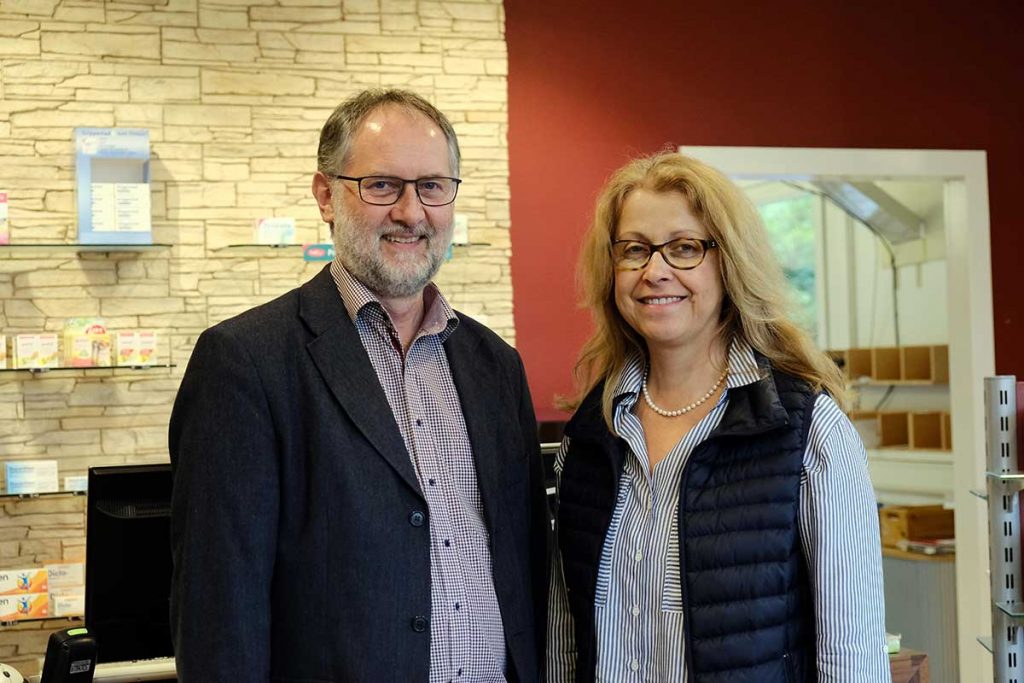To supply the residents of the neighborhood is only one thing, almost the whole of Berlin depends on this pharmacy.
From the outside it looks like a fine neighborhood pharmacy. Upstairs. Open the door. You are now standing in a small, bright sales room. In the corner a comfortable sofa, in the middle a splashing fountain and from the counter a friendly “Hello”. So far everything is normal. But when the boss takes you to the back, you soon notice that the Hubertus Apotheke am Salzufer is more than just a small pharmacy. Much more. Because behind the sales room, unexpectedly large warehouses open up, packed full of medicines or medical supplies. And cold stores, also well stocked with pharmaceutical test series. And as the boss tells us about the logistics and his 50 employees, it quickly becomes clear that almost the whole of Berlin is dependent on this pharmacy, which at second glance is no longer so small.
“The neighborhood is changing and that’s good,” says Bernd Drevenstedt now, looking out of the window at the trees, the street and the canal behind it. Just a few years ago, there were only the old apartments across the street, he says, the walking public from the university and research buildings next door and the few apartments further up the street towards the Spree, where the Charlottenbogen is now being built. But lately more buildings are being built, the area is awakening and especially young people and families are moving here. The family doctor across the street reported that the average age of her patients is currently 38 years.
“And all the old and new residents naturally need someone to go to when the child is feverish or headaches stop them from working,” says the pharmacist. And that someone is him, because the Hubertus pharmacy is still the only one in this area. Bernd Drevenstedt is a serious man with a full grey beard, a calm voice and eyes that look through heavy glasses. “I became a pharmacist because I wanted to do a mixture of business and science,” he says. He has been at this location since 2009. Since 1995 he has been the owner of the Hubertus pharmacy, which he runs together with his wife. But they do not just look after the neighbors and listen to the elderly and their concerns. No, they also make sure that Berlin’s hospitals, nursing homes, doctors’ surgeries, fire brigades and ambulances are equipped with everything they need. Medicines, for example, from simple painkillers to vaccines or bandages and important emergency medication for intensive care units.
The doctors order all of this via the online forms of the Hubertus pharmacy, which then ensures that everything arrives at the hospitals on time. “Sounds simple,” says Drevenstedt, “but behind it is a sophisticated logistical system.” And you can get a glimpse of it when you walk with him up the stairs, past offices and employees, through his pharmacy.
A few years ago, for example, when the fear of the so-called swine flu swept through politics and the health industry, the Hubertus pharmacy was responsible for the storage and distribution of the vaccine for Berlin.
One could now immerse oneself even deeper, listen even further and get a report on the changed working conditions for pharmacists or how difficult it has become in the meantime to find certain drugs. Some other time. Surely.
